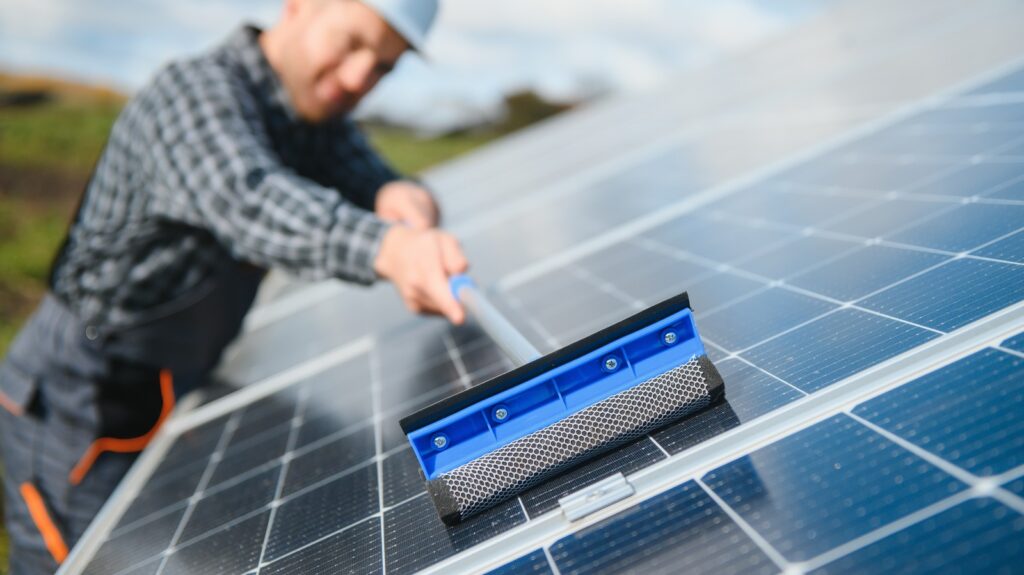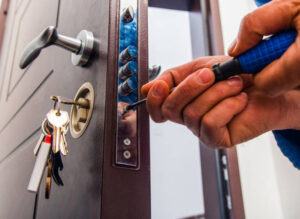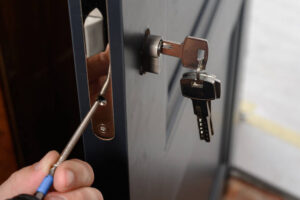
Keeping solar panels clean isn’t something most people think about after installation. But if you’re wondering whether dirt and dust affect performance, the answer is yes. While solar panels are designed to handle weather and grime, that doesn’t mean they’re maintenance-free. Residential solar cleaning may not sound thrilling, but it’s one of those small efforts that can lead to better energy production.
Why Clean Panels Matter
Solar panels need sunlight to generate electricity, and anything that blocks sunlight — dust, pollen, bird droppings, or even smog — reduces their output. Just a thin layer of dust can lower efficiency over time. When this grime builds up, your system might be working harder but producing less power. That’s not just bad for the environment — it’s rough on your wallet too.
What’s the Right Cleaning Frequency?
There’s no one-size-fits-all answer, but most homeowners do well with a twice-a-year cleaning schedule. This covers basic buildup from the seasons. However, the actual timing depends on where you live and what’s around your home. If you’re near a construction site, in a dry climate with lots of wind, or close to trees, you might need to clean them more often.
Seasonal Considerations That Matter
In the spring, pollen can coat your panels and stick like glue. Summer might bring dry dust and dirt. Fall? Leaves, twigs, and bird droppings. And winter? Snow usually slides off, but grime can stay underneath. Each season throws its own mess at your panels, so watch how your system performs as the months pass. If you notice a drop in energy production, dirt might be the culprit.
Dry Areas May Need Extra Attention
Desert regions see less rain, and rain does a decent job of washing panels naturally. If you live in a dry place, dirt collects faster and lingers longer. In these spots, panels might need cleaning every couple of months to stay at peak efficiency.
Rain Isn’t Always Enough
It’s tempting to rely on rain to clean solar panels, but it’s a bit like skipping a car wash because it rained last night. Rain can help remove loose dust, but it won’t clear off sticky grime or hard water spots. In fact, water marks from rain can add to the buildup.
Signs It’s Time for a Cleaning
Your electric bill might be the first clue. If it’s creeping up and your daily output is dropping, your panels could be dirty. Another sign? If you can visibly see dirt or bird mess on the panels from the ground, it’s probably worse than it looks up close.
Should You Clean Them Yourself?
It’s possible, but not always safe or easy. If your roof is steep or hard to access, calling in a professional is smarter. Professional cleaners have the right tools, soft brushes, and purified water systems that won’t leave streaks or cause damage. That’s especially important if your panels are under warranty — you don’t want to void it by using the wrong method.
DIY Tips for the Brave
If you’re set on doing it yourself, use a soft sponge and avoid harsh soaps. Regular tap water can leave streaks, so distilled water is a better choice. Clean during cooler parts of the day, morning or late afternoon, to avoid rapid evaporation and smudges.
Are Automated Cleaning Systems Worth It?
Some homeowners install robotic or sprinkler-based systems that clean panels regularly. These are more common in commercial setups but can be handy for people with large arrays or extremely dusty environments. They cut down on labor but come with an upfront cost that doesn’t always pay off for smaller home systems.
How Much Does Dirty Panels Affect Output?
Even light dirt can cut efficiency by 5%. Heavier grime could drop performance by up to 25% or more. That means fewer savings, especially in the long run. If you’re relying on your solar system to offset energy costs, it makes sense to keep it clean and working well.
Monitoring Your System Helps
If you have an app or dashboard for your solar system, watch for sudden dips in output. It might not be the weather — dirt could be to blame. Tracking performance month to month gives you a heads-up before the issue grows.
What Happens If You Don’t Clean Them?
Neglecting your solar panels for too long won’t break them, but it will limit how much power they produce. Over time, dirt hardens and sticks, making it harder to clean. In some cases, corrosion or permanent marks can set in, leading to long-term loss in performance or panel life.
Final Thought
Keeping solar panels clean isn’t about perfection — it’s about performance. Cleaning twice a year works for most people, but your location, weather, and environment might demand more. Watch how your system performs, take a look at your panels every few months, and don’t be afraid to call in the pros when needed. A little attention goes a long way in keeping your solar setup running strong.





